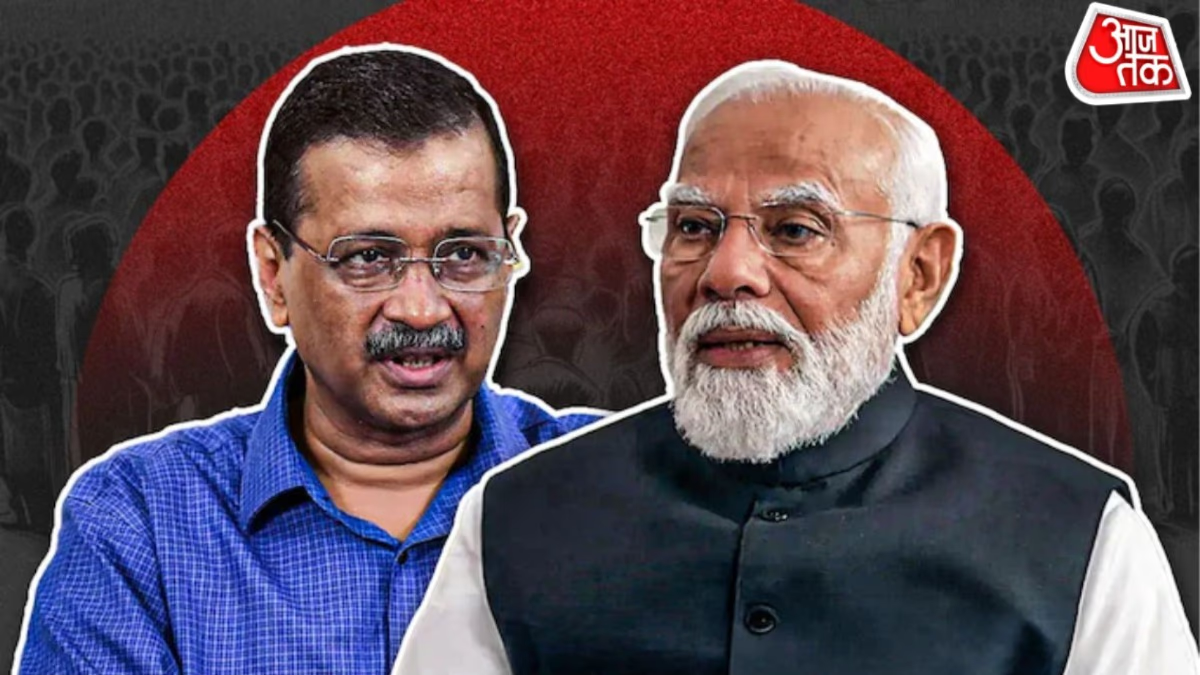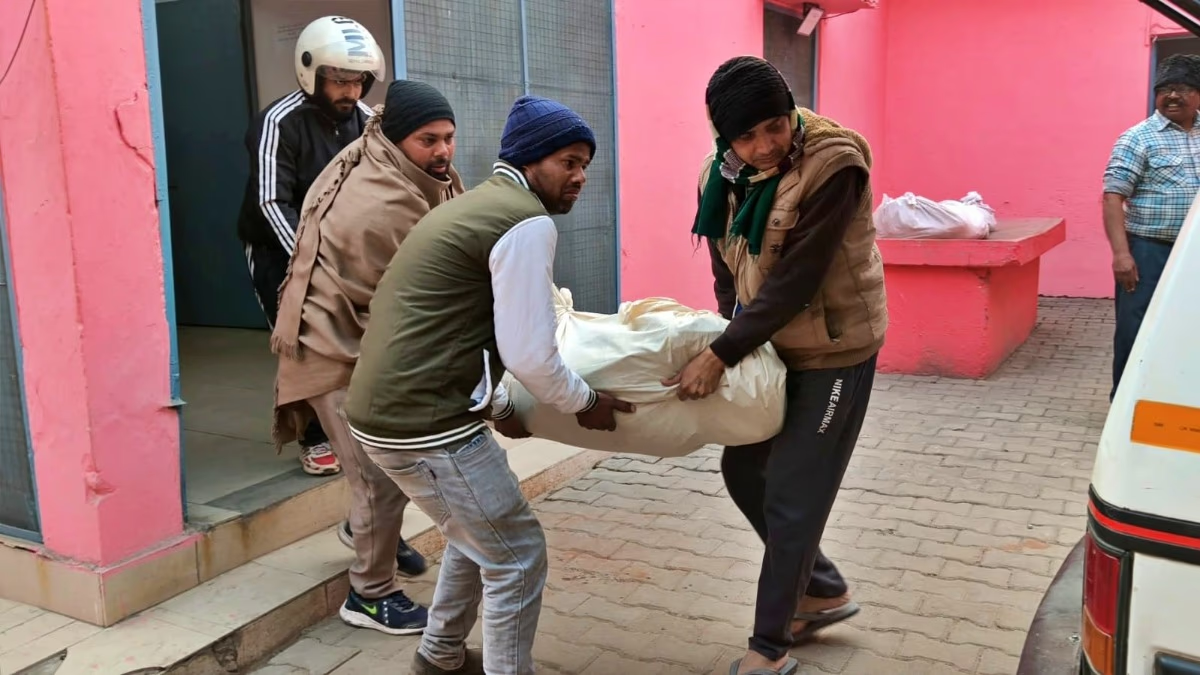The countdown for the Delhi elections has begun, with voting on February 5 and results expected on February 8. Amidst the talk of freebies in electoral politics, the Supreme Court remarked that there seems to be ample funding for these handouts but not for judges' salaries or pensions. This stern observation stands out as a reminder during every election when campaign promises range from cash, scooters, laptops, and cycles to free electricity and water.
What the Supreme Court says about Freebies?
The Supreme Court's statement that there is money for freebies but not for judges' salaries will be remembered. Criticizing state governments for delaying judges' pay, the court pointed out how funds are readily available for electoral promises, but not for addressing these salary issues.
This critique surfaces during discussions of the Nationwide Judges Association Pil. Supreme Court Justices B.R. Gavai and A.G. Masih made notable remarks on this matter today.
BJP's Challenge in Delhi
While BJP has successfully governed several challenging states under Modi's leadership, Delhi remains elusive. Over the past 26 years, BJP has won the national election four times but not Delhi. In neighboring states of Delhi, BJP has formed the government three times in Uttar Pradesh during this period.
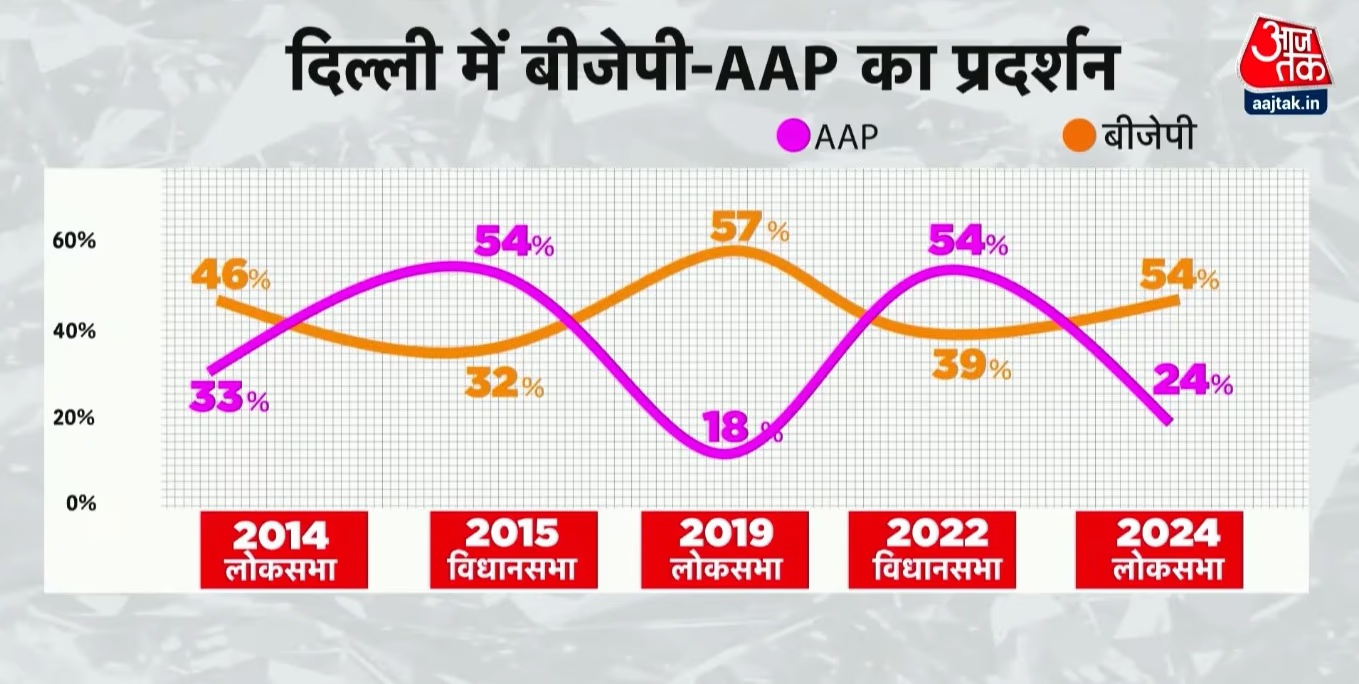
Source: aajtak
Despite multiple wins in Haryana over consecutive terms, Delhi's doors remain closed to BJP. Even after claiming all of Delhi's Lok Sabha seats multiple times, the party fails to win assembly elections. Yet, the BJP is entering the assembly elections for the seventh consecutive attempt, determined to avenge its past losses.
The 1993 Assembly Election
In 1993, BJP won its sole assembly victory in Delhi, clinching 49 seats. Madanlal Khurana became Delhi's first Chief Minister. However, Khurana resigned in February 1996 amidst allegations of a hawala scandal, although he was later exonerated of these charges. Following CM Sahib Singh Verma's resignation due to onion price hikes, Sushma Swaraj took the chief ministerial role for a brief period before BJP lost power.
Since then, BJP has earnestly tried to reclaim the Chief Minister's seat in Delhi. Modi himself made attempts post his significant 2014 national victory.
Delhi's Swiftly Shifting Sentiments
During the 2014 Lok Sabha elections, Delhi was swept by the Modi wave, yet the tide turned toward Arvind Kejriwal within months for the assembly elections. BJP's voteshare dwindled from 46% in Lok Sabha to 32% in the 2015 assembly, while AAP leaped from 33% to 54% in assembly support.
This pattern repeated in 2019-2020, with BJP's vote share dropping from 57% in Lok Sabha to 39% in Delhi assembly elections. Meanwhile, AAP's share soared from 18% to 54%. The upcoming electoral cycle may see a similar trend unless historical voting behaviors shift dramatically.
The Unlocked Doors of Delhi
Modi's name has consistently drawn voters nationwide, but Delhi remains elusive. While BJP made inroads in traditionally resistant states like Assam and Tripura, Delhi's closed doors remain unexplained. Perhaps Kejriwal's consistent candidacy as the face of CM contrasts with BJP's strategy.
AAP's Assembly Election Strategy Mimics BJP's Formula
When BJP announced Kiran Bedi as its CM candidate in 2015, the party secured just three seats. No CM face in the subsequent 2020 elections yielded a similar outcome. Kejriwal capitalized on BJP's lack of a prominent candidate.
CSDS data suggests that in 2020, 40% of Modi supporters pivoted to vote for Kejriwal as CM during assembly polls, showcasing Kejriwal's strategic advantage. Kejriwal's challenges prompt direct responses from Modi, questioning AAP's integrity.
Pro-Incumbency Votes and Corruption Allegations
Despite its roots in the anti-corruption movement, AAP now faces corruption charges against its leaders, including Kejriwal, Manish Sisodia, and Sanjay Singh. Whether these accusations could tilt the electoral balance remains a question, especially with pro-incumbency waning after a decade in power.
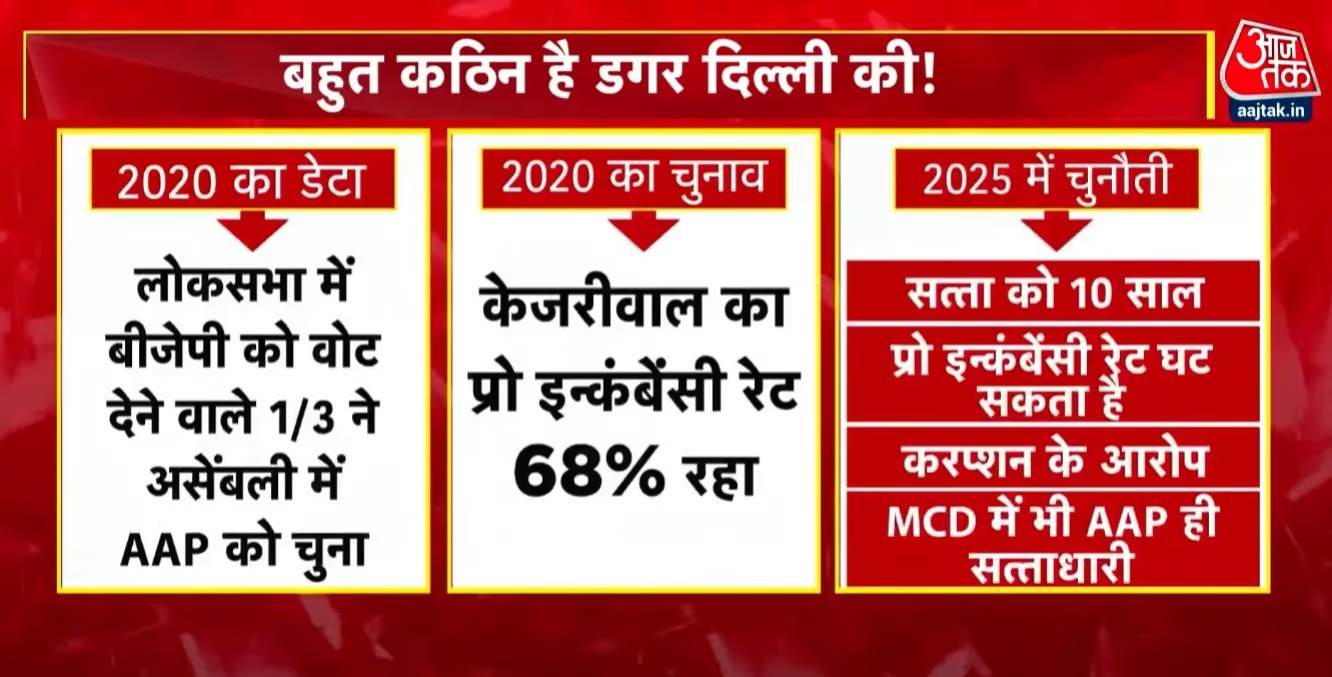
Source: aajtak
Voter swings from state to national elections have been pivotal in past outcomes. With AAP now also governing MCD, previous advantages might diminish, potentially opening doors for a shift in power.
Congress's Competitive Spirit Against AAP
Could BJP win Delhi if the race becomes three-cornered? While BJP's assembly victory remains distant, this balance might shift in favor of AAP should Congress mount a strong campaign. Historical data suggests BJP thrived in triangular contests, like 1993 and 2013, but Congress votes have since drifted to AAP. Congress's resurgence could reconfigure the political landscape.
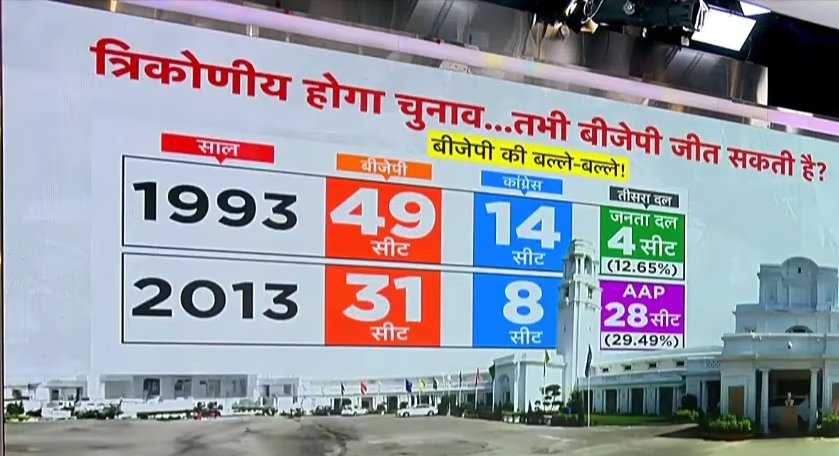
Source: aajtak
In key contests, Congress fields strong candidates against AAP leaders, indicating a refusal to cede ground easily. Promises of monthly allowances for women echo across parties, revealing competitive campaign tactics. This political scene in Delhi suggests a fierce battle, but the ultimate question remains: who will gain the upper hand?
